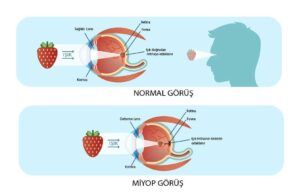
health developments
Cholesterol Testing: What You Need to Know About Checking Your Cholesterol Levels
Cholesterol is a type of fat found in your blood. It’s an essential substance that your body needs to build healthy cells, but when levels are too high, it can increase your risk of heart disease and stroke. This is why checking your cholesterol levels is important.
In this article, we’ll cover everything you need to know about cholesterol testing, including why it’s important, how it’s done, and what your results mean.
Why is cholesterol testing important?
Cholesterol testing is important because it can help identify whether you’re at risk of developing heart disease or stroke. High levels of LDL cholesterol (often referred to as “bad” cholesterol) can lead to the buildup of plaque in your arteries, which can cause them to narrow and harden. This can increase your risk of heart attack or stroke.
By getting your cholesterol levels checked, you can identify any potential issues early on and take steps to reduce your risk.
How is cholesterol testing done?
Cholesterol testing is a simple blood test that can be done at your doctor’s office or a lab. There are two types of cholesterol tests:
Lipid panel: This is a standard test that measures your total cholesterol, HDL (high-density lipoprotein) cholesterol (often referred to as “good” cholesterol), LDL cholesterol, and triglycerides (another type of fat found in your blood). For this test, you’ll typically need to fast for 9-12 hours beforehand.
Non-HDL cholesterol test: This test measures your total cholesterol minus your HDL cholesterol. It’s often used as an alternative to the lipid panel test if you’re unable to fast.
What do my cholesterol test results mean?
Your cholesterol test results will typically include your total cholesterol, HDL cholesterol, LDL cholesterol, and triglycerides. Here’s what each of these numbers means:
Total cholesterol: This is the total amount of cholesterol in your blood. Ideally, your total cholesterol should be less than 200 mg/dL.
HDL cholesterol: This is the “good” cholesterol that helps remove LDL cholesterol from your blood. Higher levels of HDL cholesterol are better, and ideally, your HDL cholesterol should be above 60 mg/dL.
LDL cholesterol: This is the “bad” cholesterol that can build up in your arteries and increase your risk of heart disease and stroke. Ideally, your LDL cholesterol should be less than 100 mg/dL.
Triglycerides: These are another type of fat found in your blood. Higher levels of triglycerides are associated with an increased risk of heart disease. Ideally, your triglycerides should be less than 150 mg/dL.
If your cholesterol levels are outside of the ideal range, your doctor may recommend lifestyle changes such as improving your diet, increasing exercise, and quitting smoking. In some cases, medication may be necessary to lower your cholesterol levels.
In conclusion, cholesterol testing is an important tool for identifying your risk of heart disease and stroke. By getting regular cholesterol tests, you can take steps to improve your cholesterol levels and reduce your risk of these serious health conditions.








